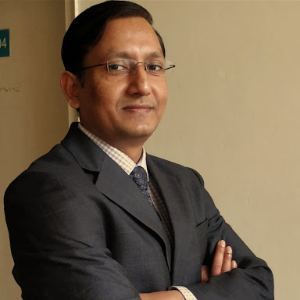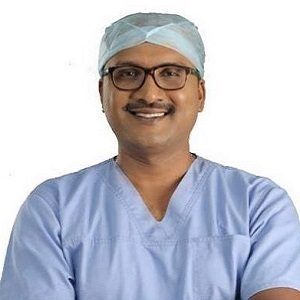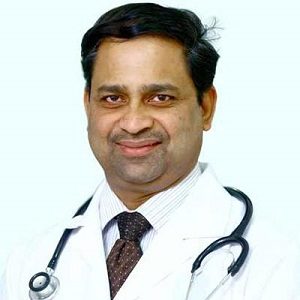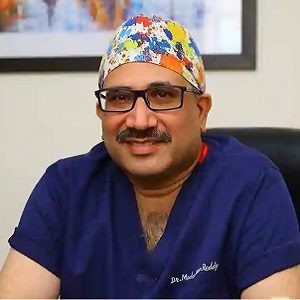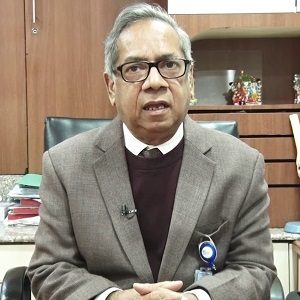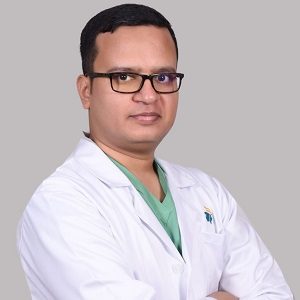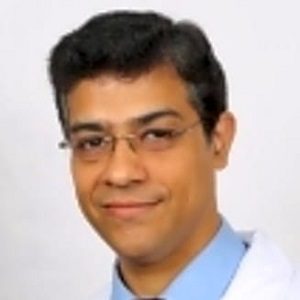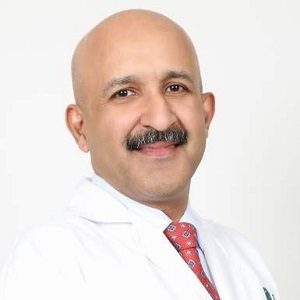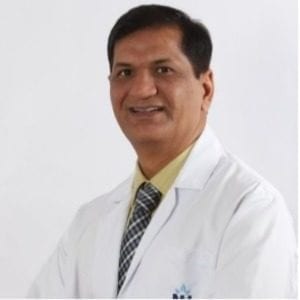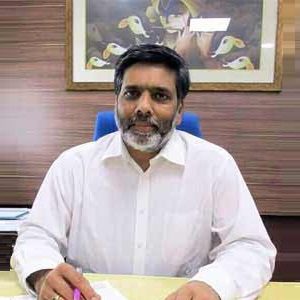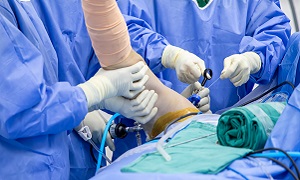Best Doctors in India for Shoulder Arthroscopy
- Orthopedic & Spine Surgeon, New Delhi, India
- Over 14 years’ experience
Profile Highlights:
- Dr. Om Prakash Gupta is a reputed Spine Surgeon in India.
- He is currently functioning as a Consultant – Orthopedics & Spine at Max Smart Super Speciality Hospital, New Delhi
- He has over 14 years of experience.
- Orthopedic Surgeon, Chennai, India
- Over 21 years’ experience
Profile Highlights:
- Dr. A Navaladi Shankar is a well-known spine surgeon and orthopedist in Chennai with 21+ years of experience.
- He completed an MBBS from Al-Ameen Medical College, MNAMS from the National Board of Education, and a Diploma from Sri Ramachandra Medical College and Research Institute.
- Dr. Shankar holds expertise in Laminectomy, Lower Back Pain and Neck Pain Treatment, Arthritis Management, and Trauma Surgery.
- Orthopaedic Surgeon, Chennai, India
- Over 22 years’ experience
Profile Highlights:
- Dr. Kornad P Kosygan is one of the few Orthopedic surgeons in India with a double FRCS degree.
- He has been successful in the diagnosis and treatment of severe Orthopedic problems throughout his career.
- Dr. Kornad is invited as an exclusive Orthopedics Specialist from over six countries in the Asian and European subcontinent.
- Dr. Kosygan has sought extensive training and exposure in the department of Orthopaedics.
- Orthopaedic Surgeon, Chennai, India
- Over 25 years’ experience
Profile Highlights:
- Dr. Madan Mohan Reddy is one of the most acclaimed Orthopedic Surgeons in India with tons of experience and knowledge that he gained over the course of years.
- He has attended several courses across the world, in countries like Switzerland, Germany, Australia, and Italy.
- Orthopedic Surgeon, New Delhi, India
- Over 42 years’ experience
Profile Highlights:
- As one of the most experienced orthopedic surgeons in Delhi, Dr. Chander Shekhar has been practicing for 42 years. He is associated with Indraprastha Apollo Hospital as a consultant.
- Dr. Chander Shekhar is interested in Knee and Hip joint replacement and revision.
- He honed his expertise by completing a fellowship in shoulder and knee arthroscopy in the United States. Besides replacement & revision surgery, he has expertise in Birmingham Hip Resurfacing, BHR with stem, and Minimally Invasive Surgery.
- Orthopedic Surgeon & Spine Surgeon, New Delhi, India
- Over 18 years’ experience
Profile Highlights:
- Dr. Amit Kumar Agarwal is a Delhi-based orthopedic, joint replacement, and spine surgeon consultant who has been assuring joint and spine health for about 18 years.
- Dr. Agarwal has garnered numerous accolades for his work in treating Joints and Musculoskeletal Disorders, pain management, sports injury, and articular degeneration during his career.
- Orthopedic Surgeon, New Delhi, India
- Over 22 years’ experience
Profile Highlights:
- Dr. Vibhu Bahl is one of the finest Orthopedist and Joint Replacement Surgeon in India. He has experience of over 22 years in this field.
- Dr. Bahl has successfully performed multiple complex and primary total knee and hip replacements over his career. Besides these, he specializes in computer-assisted total knee replacements. Patients seeking Arthroscopy for shoulder dislocation, degeneration, and repair must consult him.
- Dr. Bahl participated as a Faculty in many Arthroscopy conferences.
- He is passionate about research and has a long list of publications in prestigious national and international journals.
- Orthopedist, New Delhi, India
- Over 20 years’ experience
Profile Highlights:
- Dr. Havind Tandon is one of the best Orthopedists in Delhi, having nearly two decades of experience. He practices as a senior consultant at Indraprastha Apollo Hospital.
- Many patients who need a knee replacement, repair, or osteotomy have benefitted from his enthusiasm and skill in the field.
- Dr. Havind Tandon worked with Jhonson & Jhonson as a Facilitator for the National Joint Replacement Program.
- Pain management counseling, Joint Replacement Surgery, Spinal Therapy, reverse shoulder replacement, neuropathy assessment, foot drop, treatment of complex fractures, and Adult Joint Reconstruction are just a few of the vital services provided by Dr. Havind Tandon.
- Dr. Tandon was also recognized for his work in the field of research.
- Orthopedic and Spine Surgeon, Gurugram, India
- Over 25 years’ experience
Profile Highlights:
- With over 25 years of experience, Dr. Rajesh Kumar Verma can be generally considered a boon for people suffering from complex, bone, joint, or spine disorders.
- Currently known as one of India’s leading spine experts in India, Dr. Rajesh Kumar Verma performs as many as 50 surgeries in a month. The types of surgeries he performs include all types of spine surgeries, joint replacements, as well as complex trauma surgeries.
- Orthopedic Surgeon, Chennai, India
- Over 25 years’ experience
Profile Highlights:
- Dr. Krishnamurthy K provides consultation at the Apollo hospitals of Chennai.
- He has also worked as a senior registrar and assistant surgeon earlier and has sound knowledge of his field.
- One can reach Dr. Krishnamurthy K for treatment of fractures, joints, shoulders, knees, hip replacement, etc.
Best Hospitals in India for Shoulder Arthroscopy
Fortis Hospital, Shalimar Bagh
- City: New Delhi, India
Hospital Highlights:
- Fortis Hospital in Shalimar Bagh is a multi-super specialty hospital that strives to provide world-class patient care by leaving no stone unturned.
- Fortis, Shalimar Bagh, with 262 beds and a 7.34-acre footprint, provides the best level of medical care through its team of doctors, nurses, technicians, and management professionals.
Reliance Hospital, Mumbai
- City: Mumbai, India
Hospital Highlights:
- Reliance Hospital is one of the best super-specialty care hospitals in Navi Mumbai.
- The main purpose of this hospital is to become a trustworthy place for the best health and hope for society. The hospital is well connected to the suburbs of Mumbai and Navi Mumbai.
- The hospital has various specialty departments, viz., Accident & Emergency, Anesthesiology, Dental Services, Dermatology, Diabetology, Dietetics Nutrition, Endocrinology, ENT, Gastroenterology, General Surgery, Gynaecology And Obstetrics, Hepato Pancreato Biliary Surgery, Infectious Disease, Internal Medicine, Interventional Radiology, Laboratory Medicine, Minimal Access Laparoscopic Surgery, Nephrology, Neurosciences, Opthalmology, Orthopaedics, Paediatrics, Pain Management Palliative Care, Physical Medicine Rehabilitation, Plastic And Reconstructive Surgery, Psychiatry, Pulmonary Medicine, Radiology, Rheumatology, Transplant, Urology Andrology, Vascular Surgery
Lilavati Hospital & Research Centre, Mumbai
- City: Mumbai, India
Hospital Highlights:
- Lilavati Hospital & Research Centre is India’s premier multi-speciality tertiary care hospital and has been recognised as a global medical excellence centre.
- Lilavati Hospital & Research Centre has built an unrivalled level of trust with its patients over the years, thanks to a solid foundation that comprises cutting-edge facilities, the best medical competence, research, education, and charity endeavours.
- The hospital is quite proud of the fact that it now serves patients from all kinds of backgrounds, not just from the United States but from all around the world.
- The hospital has a total of 323 beds, one of the largest Intensive Care Units (ICUs), 12 Operation Theatres with modern amenities, over 300 consultants, and almost 1,800 personnel.
Venkateshwar Hospital, Dwarka, New Delhi
- City: New Delhi, India
Hospital Highlights:
- State-of-the-art technology and devoted healthcare professionals have been brought together under one roof at Venkateshwar Hospital to provide genuine medical care. The hospital’s professionals work together as a team to deliver the best possible treatment to their patients, using the most sophisticated equipment and information technology.
- Venkateshwar Hospital’s mission is to attain global excellence in healthcare by employing evidence-based, ethical clinical practices and cutting-edge technology by a team of highly skilled experts.
MGM Healthcare, Chennai
- City: Chennai, India
Hospital Highlights:
- Located in Chennai, India, MGM Healthcare is a top multispecialty hospital that provides all medical services under one roof.
- Since its founding in 2019, MGM Healthcare has quickly become a leading national referral centre, creating several innovative flagship initiatives.
- MGM Healthcare combines next-generation medical and digital technologies to provide better patient results.
- With 12 centres of excellence, more than 400 inpatient beds, 100 intensive care unit beds, and 24/7 emergency care, MGM Healthcare leaves no chance in redefining the patient experience in Chennai.
- MGM Healthcare boasts 250+ expert doctors across 30+ departments, including Cardiology, Pulmonology, Neurology, Obstetrics & Gynaecology, and more.
- They house 12 specialized Centres of Excellence, including Neurosciences, Orthopaedics, and Multi-Organ Transplantation.
- Their team of doctors, nurses, and paramedics works together to give every patient individualized treatment.
Shoulder Arthroscopy
Shoulder arthroscopy is a surgical procedure that uses a small camera known as an arthroscope. This camera helps to examine or repair the tissues inside or around the shoulder joint. The arthroscope is inserted through a small incision in your skin.
Since the arthroscope and the surgical instruments are quite thin, this makes the surgery possible through the use of small incisions, rather than the use of larger incisions which were needed for standard, open surgery. This results in lesser pain for patients and it also shortens the recovery time and return to regular activities. This technique has been performed since the 1970s and it has made the diagnosis, treatment, and recovery from surgery faster and easier.
Purpose
The procedure can be performed for multiple reasons:
- A torn or damaged cartilage ring or ligaments
- A torn or damaged biceps tendon
- A torn rotator cuff
- Shoulder instability, in which the shoulder joint becomes loose and slides around too much or becomes dislocated
- A bone spur or inflammation around the rotator cuff
- Inflammation or damaged lining of the joint, often caused by an ailment such as rheumatoid arthritis
- Loose tissue that needs to be removed
- Shoulder impingement syndrome, to make more room for the shoulder to move around
- Arthritis of the end of the clavicle
Preparation
Before your procedure, let your doctor know about what kind of medications you might be taking. This can include supplements or herbs.
For two weeks before the procedure, it is likely that you will need to stop taking blood thinners. If you are suffering from heart disease, diabetes, or any such medical conditions, then your surgeon might want to see the doctor treating you for these conditions.
If you drink too much alcohol, inform your surgeon. If you smoke, it is important to stop at least two weeks before the procedure. Smoking can interfere with wound and bone healing.
If you get the flu, fever, herpes, or any other illness, before the surgery, you need to inform your doctor before the surgery.
On the day of the surgery, you might be asked to fast for around eight hours before the surgery. Make sure that you arrive at the hospital or surgery center on time. You might also receive a few medications which you are to take with a little water.
Procedure
Once you are in the operating room, you are going to be positioned so that your surgeon is able to easily adjust the arthroscope, for having a clear view of the inside of the shoulder. You might be positioned in a beach-chair position, or may be asked to lie on your side. Each position has its own advantage. Your surgeon will select the position based on their training as well as the procedure.
After being positioned, your surgical team will be removing any hair if required. An antiseptic solution might next be spread to clean the skin. Your forearm might also be kept in a holding device to ensure that it stays still.
Next, your surgeon might inject fluid into the shoulder in order to inflate the joint. This will make it easier for him/her to see the structures of your shoulder through the arthroscope. Next, your surgeon will be making a tiny puncture in your shoulder, which is going to be around the size of a buttonhole, for inserting the arthroscope. The fluid will flow through the arthroscope so that the view remains clear and any bleeding is controlled. Images from the arthroscope are then projected on the video screen, and they will show the surgeon the inside of your shoulder as well as any damage.
Once your surgeon is able to identify the problem, other small instruments will be inserted through separate incisions for treating it. In most cases, special devices are used for anchoring stitches into bone. Any damaged tissues will be repaired.
After the surgeon performs all necessary repairs, the incisions will be closed with stitches and will be covered with a dressing. Generally, most surgeons take pictures from the video monitor during the procedure to show you their findings and the repairs that were made.
In some cases, open surgery might be required if the surgeon sees that there is a lot of damage. If open surgery is performed, you will have a large incision, so that your surgeon is able to operate directly on your bones and tissues.
Recovery
After you are discharged from the hospital, make sure you follow your doctor’s instructions for self-care.
Complete recovery can take between 1 to 6 months. You might need to wear a sling for the first week. If a lot of repairs were done, you might need to wear them even longer.
You can also take pain medications if you experience a lot of pain.
You can choose to undergo physical therapy as these will help you regain motion and strength in your shoulder. The length of the therapy can vary, depending on the procedure that was performed.
Since all patients have different health conditions, recovery time varies for every patient. If you had a minor repair, then you might need a sling, and your strength should return after a short period of time.
Risks
Few risks that are associated with this procedure include:
- Shoulder stiffness
- The repair failing to heal
- Failure of the surgery to relieve symptoms
- The weakness of the shoulder
- Damage to the cartilage of the shoulder
- Blood vessel or nerve injury
- Allergic reaction to anaesthesia
- Breathing problems
- Blood clots or infection

